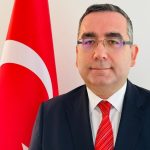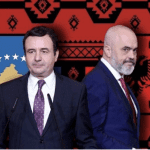By Olli Rehn
I am glad to discuss the Western Balkans in this highly qualified company and here in Rome. Italy is a strong supporter of the EU’s enlargement policy and a great advocate of the European perspective for the Western Balkans. I thank you for your support and commitment.
Let me begin by referring to the results of the December European Council. After the Summit we had headlines indicating that “EU leaders are closing doors to the East”. This was misleading spinning.
The correct headlines should have read “the EU keeps its doors open for South Eastern Europe”. This door is kept open for Turkey, Croatia and the other countries of the Western Balkans. Once any of these countries meets the EU’s accession criteria, she can, on her own merits, walk through that door.
The first countries that walked through the EU door were Bulgaria and Romania. It is worth celebrating, even if the rest of Europe would not necessarily feel like it. This is a major step for the 30 million new EU citizens in these countries. The fifth enlargement round was completed.
In other words, the EU Summit was not about closing doors, but building a renewed consensus on enlargement. It will enable to maintain the EU’s soft power to encourage democratic and economic transformation. Moreover, the December European Council reconfirmed the European perspective for the Western Balkans. This is an important commitment.
For Serbia the forthcoming elections will be a crucial opportunity to take a step forward towards the European future that its citizens deserve.
I expect that a new reform-oriented and pro-European government in Belgrade will make rapid progress towards the EU. Thanks to its institutional capacity, Serbia should be able to implement the Stabilisation and Association Agreement quickly once the negotiations will be concluded, and thus open the door to applying for membership.
I look to the new government to demonstrate its clear commitment to achieving full cooperation with the Hague Tribunal without delay. As the EU Member States have many times reaffirmed, full cooperation with the ICTY is an essential condition for the pace and conclusion of the SAA negotiations.
After the SAA, the next logical step for Serbia would be to achieve candidate status for EU membership. As soon as Serbia has achieved a solid track-record in implementing the SAA, the EU would be able to consider an application for membership. This is the clear policy of the EU, as reiterated in the conclusions of the European Council last December. The SAA is thus the gateway to applying for membership.
Kosovo is also moving towards critical times. The EU wants to ensure that the status process succeeds and leads to a sustainable settlement.
The status settlement needs to be politically and legally clear and set out a vision for Kosovo’s future development. Kosovo’s status question is sui generis, and sets no precedent.
This will give a further impetus for the Kosovo authorities to progress on reforms in the key areas of the rule of law, economy and public administration. We need to guarantee a successful transfer of the responsibility from the UN to an International Civilian Office which will be a guarantor of the status settlement. As final status moves closer, preparations for the EU role in the future international presence are intensifying. The EU’s engagement in Kosovo is likely to include our contribution to the International Civilian Office, including an ESDP operation in the rule of law and an EU presence to implement the Community financial assistance.
In Kosovo, working groups are currently preparing for transition in the specific areas of constitution, civil administration, economy and the rule of law.
In the Commission’s view, the status should be clearly defined, respect the Contact Group guiding principles and lead to a sustainable, multiethnic and democratic Kosovo. Kosovo should be able to engage in international contractual relations with the International Financial Institutions and to negotiate an SAA with the EU.
That’s why the EU will welcome the submission of the UN Special Envoy Martti Ahtisaari’s proposal after the Serbian elections, and support his efforts. Italy will have an important role to play as a member of the UN Security Council.
For the countries of the Western Balkans, another door was opened in December, when these countries established a free trade area (CEFTA). They replaced a patchwork of 32 bilateral trade agreements with one regional trade agreement. This is a strong signal to potential investors that the region is building an attractive, stable and predictable environment for foreign investments.
For ordinary people, the doors will open when the EU finalises the visa facilitation negotiations. The high cost of visas, long queues and rigid bureaucracy have created obstacles to the free movement of people. This is a first step towards visa free travel.
Last July I attended the EXIT rock festival in Novi Sad in Serbia. I talked to young Serbs and other young people from the region. The possibility to travel freely in Europe was at the top of their wish list. They do not see the EU as a bureaucratic monster, but as a ticket to peace, liberty and better economic opportunities.
Let me recall the mood in summer 2005: Do you know who cheered most in our neighborhood after the French and the Dutch referenda? The Turkish nationalists, the Serbian radicals, and the Russian panslavists.
Why? Because they thought that the EU would now turn into itself, withdraw its commitments, and become too weak to project its soft power of peace, stability and European values in its neighborhood.
It is our joint mission to prove those radical nationalists wrong by restoring a renewed consensus on EU enlargement.
After the Dutch and French no-votes, many politicians were ready to relegate enlargement straight to Serie B – or even out of the league. But instead of an almost sure relegation we are still firmly in Serie A, or the Premier League. We will for sure make it to the Champions’ League again. I am glad Italy is playing on our side and in our team.
This speech was delivered at the International Conference The European perspective for the Western Balkans organized by the Italian Ministry of Foreign Affairs in Rome, 16 January 2007.










